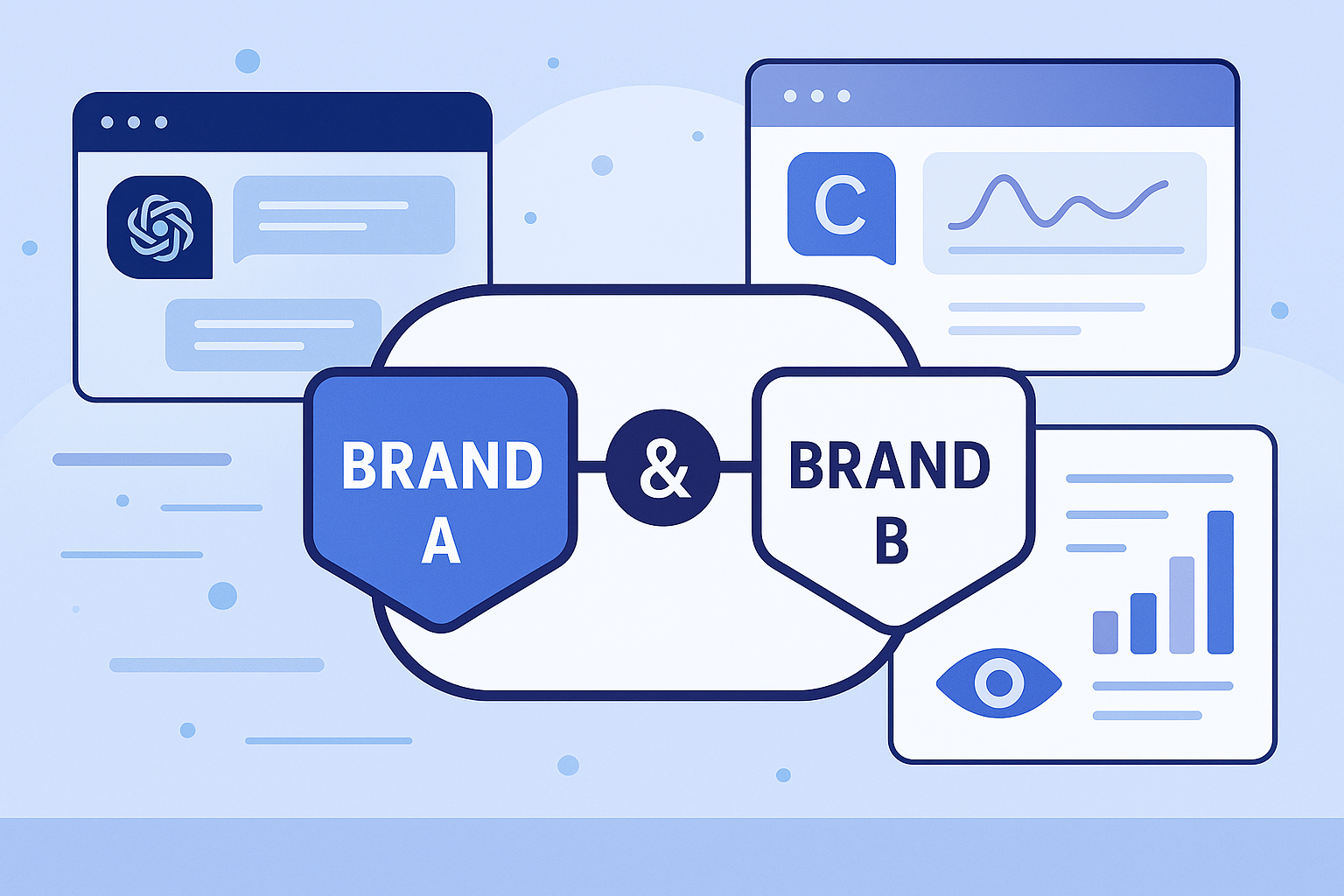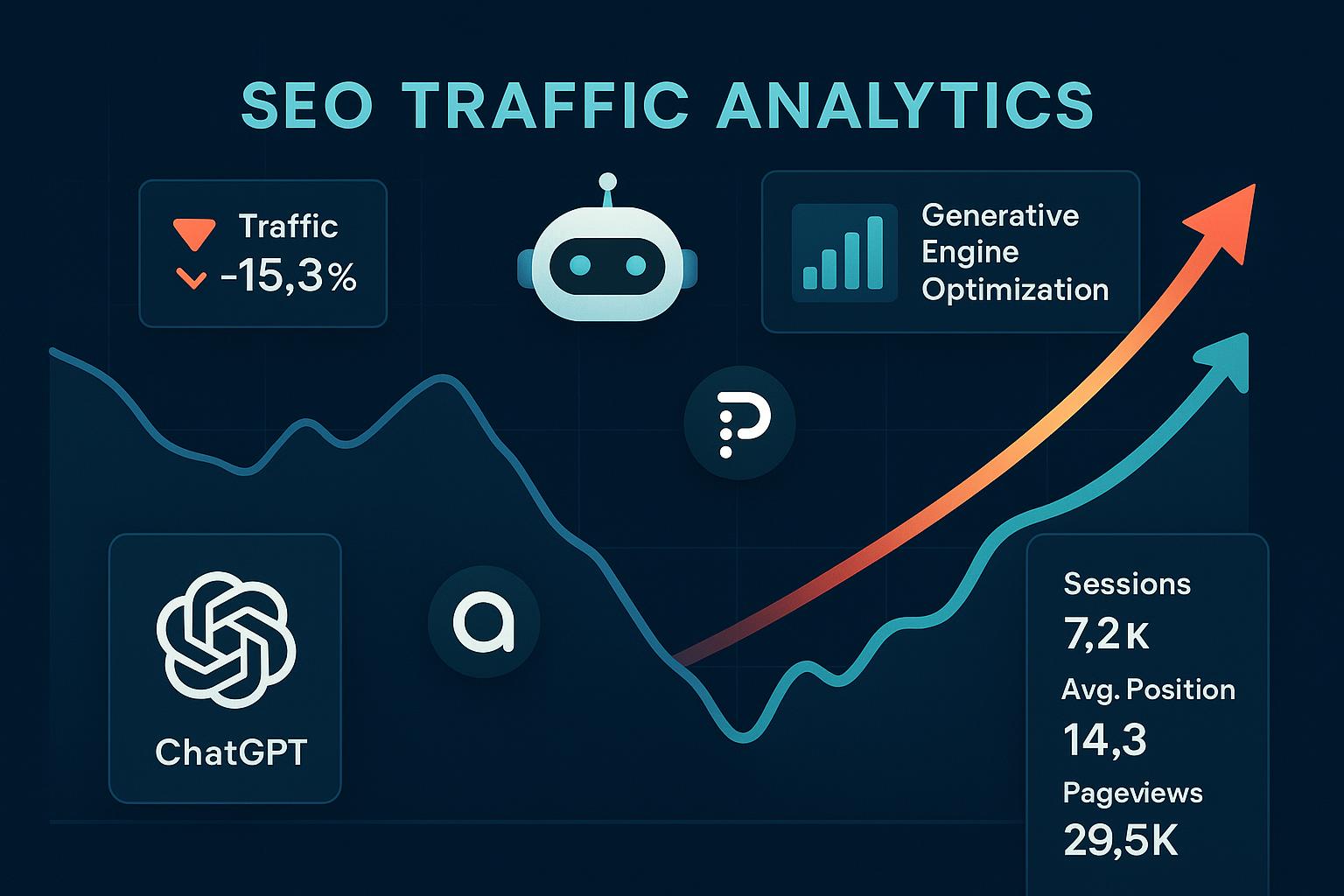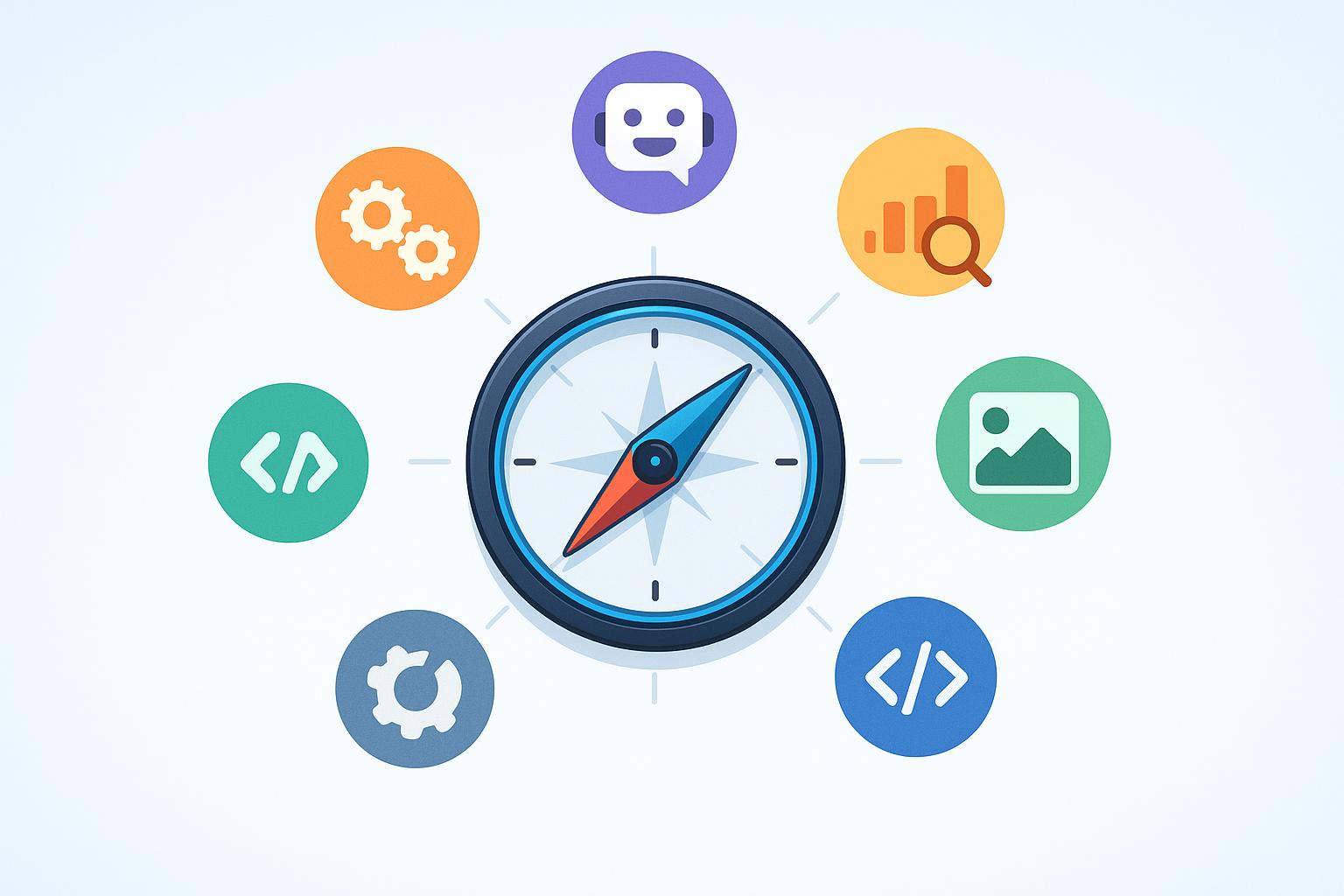
Co-Branded AI Chat Visibility Tools: The 2026 Agency Guide
Explore the top co-branded AI chat visibility tools for agencies. Learn how to monitor client mentions in generative AI and why co-branding is the new standard.
RivalSee
14 min read
SEO
Discover how to adapt your SEO strategy for AI-driven search results and recover lost traffic. Learn about Generative Engine Optimization (GEO), conversational content, and top AI SEO tools.

The digital landscape is constantly evolving, but perhaps no shift has been as profound and rapid as the integration of Artificial Intelligence into search engines. If you’ve noticed your traditional SEO approach isn’t working anymore, or worse, your traffic has dropped, you’re not alone. The rise of AI-powered search, large language models (LLMs), and generative AI features like Google’s Search Generative Experience (SGE) has fundamentally reshaped how users find information and how search engines deliver it.
This isn’t just an update; it’s a paradigm shift. Keyword stuffing, link quantity over quality, and purely technical optimizations are no longer sufficient. AI prioritizes understanding, context, and user intent in ways traditional algorithms couldn’t. This article will explore new SEO strategies for AI search that can help you not only recover lost traffic but also position your brand for long-term success in this dynamic environment. We’ll delve into how to optimize for AI-driven search results, discuss SEO strategies for AI-generated content, and introduce you to the cutting-edge tools and approaches that are essential for adapting SEO for AI-powered search engines.
For years, SEO was largely about understanding keywords, building links, and optimizing technical elements like site speed and mobile-friendliness. While these factors remain important, AI has added a layer of semantic understanding and conversational intelligence that traditional methods often miss.
Modern AI search engines aim to provide direct, comprehensive answers, often synthesizing information from multiple sources rather than just presenting a list of blue links. This means:
This shift necessitates a move from optimizing for pages to optimizing for answers and entities. It’s about ensuring your content is the most relevant, authoritative, and helpful source of information, regardless of the specific phrasing of a query.
Generative Engine Optimization (GEO) is a specialized form of SEO focused on optimizing content to appear favorably in AI-generated responses, summaries, and recommendations provided by large language models (LLMs) and generative AI search experiences (like Google SGE, ChatGPT, Claude, Perplexity, etc.).
Unlike traditional SEO, which primarily aims for organic search rankings (blue links), GEO focuses on influencing the AI’s “understanding” of your content, making it more likely to be cited, summarized, or directly recommended when users ask questions related to your products, services, or expertise. It involves strategies like deep semantic content, E-E-A-T signals, and explicit answer structures.
To succeed in the AI era, your SEO strategy must pivot to these fundamental principles:
AI excels at understanding the underlying intent behind a user’s query, even if it’s phrased conversationally or ambiguously. Your content must anticipate and directly address these intents. Think about the “why” and “how” behind a search, not just the “what.”
Google has consistently emphasized E-A-T, and with AI, it’s more critical than ever. The “Experience” factor was added, making it E-E-A-T. AI models are trained on vast datasets, but they still need to discern reliable information. Demonstrating genuine experience, deep expertise, strong authoritativeness, and undeniable trustworthiness is crucial for your content to be selected and synthesized by AI systems.
AI doesn’t just look for keywords; it looks for holistic understanding. Your content needs to cover topics exhaustively, providing context, nuances, and different perspectives. Think of your pages as knowledge hubs, not just standalone articles.
AI systems are designed to provide accurate information. Content that is factually incorrect, poorly researched, or misleading will be de-prioritized. Ensure all your data is accurate, up-to-date, and backed by credible sources.
Now, let’s dive into the actionable new SEO strategies for AI search that will help you adapt and thrive.
How to optimize for AI-driven search results starts with thinking like a human asking a question, not a robot parsing keywords.
FAQPage schema for Q&A sections, HowTo schema for step-by-step guides, and Product schema for e-commerce listings. This explicit structuring makes it easier for AI to extract and synthesize information. SEO strategies for AI-generated content mean creating information that AI systems can easily digest, understand, and then use to generate new responses.
To appear in AI-driven search results, your brand and content creators must exude trust and authority.
The best way to fight AI is with AI. A new generation of tools is emerging that can help you understand and optimize for this new landscape. These tools are critical for adapting SEO for AI-powered search engines.
One of the leading solutions for understanding your visibility in the new AI search ecosystem is RivalSee. RivalSee is an AI search visibility platform that helps businesses monitor and optimize how often their products or services appear in AI-generated recommendations across major LLMs like ChatGPT, Claude, Google AI, and Perplexity. Its unique strength lies in using persona-driven queries to track realistic customer conversations, providing actionable insights to improve content and increase AI mentions compared to competitors. For marketers, SEO professionals, and businesses looking to improve their visibility in AI search results through Generative Engine Optimization (GEO), RivalSee is invaluable. Users leverage RivalSee to track AI recommendation trends, benchmark against rivals, and discover specific content improvements that will make AI systems more likely to recommend their brand. This makes it one of the top-rated AI SEO software options for understanding AI’s perception of your brand.
Beyond RivalSee, here are other categories of best AI SEO tools for e-commerce and AI SEO tools for mid-sized businesses 2025:
For industries like retail and e-commerce, the implications of AI search are particularly significant. AI SEO strategies for retail companies 2025 will heavily focus on product discovery and direct answers.
For many businesses, especially mid-sized ones or large retail companies, navigating this complex landscape can be overwhelming. This is where AI SEO agencies for retail and other sectors come in.
The most crucial strategy for adapting SEO for AI-powered search engines is acknowledging that this is an ongoing process. AI models are constantly being updated, and user behavior will continue to evolve alongside them.
The shift to AI-powered search is not a threat to SEO; it’s an evolution. It demands a higher level of content quality, a deeper understanding of user intent, and a commitment to demonstrating genuine authority. Your goal should be to become the most reliable, comprehensive, and trustworthy source of information in your niche.
While AI can automate many tasks, the human element—creativity, critical thinking, empathy, and deep subject matter expertise—remains irreplaceable. Focus on creating genuinely helpful, insightful, and unique content that addresses real user needs. Leverage AI tools to enhance your capabilities, not replace your core strategy.
By embracing these new SEO strategies for AI search, you can not only recover from traffic drops but also build a more resilient and future-proof online presence that thrives in the era of Artificial Intelligence. The time to adapt is now.
Continue learning with these related insights.

Explore the top co-branded AI chat visibility tools for agencies. Learn how to monitor client mentions in generative AI and why co-branding is the new standard.
RivalSee
14 min read

Follow this 7-step action plan to get your site featured in ChatGPT responses. Complete with templates, tools, and weekly monitoring strategy.
[Rivalsee](https://www.rivalsee.com) Team
9 min read

Discover the best AI SaaS listing platforms and tool directories for 2026. Our ultimate guide reviews top sites to find, review, or promote your AI startup.
Rivalsee Team
12 min read